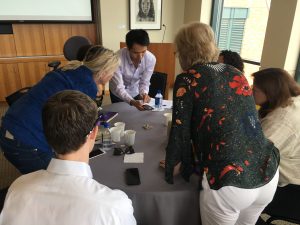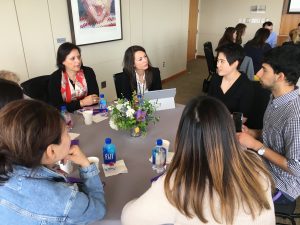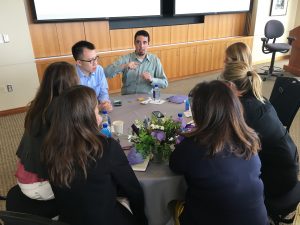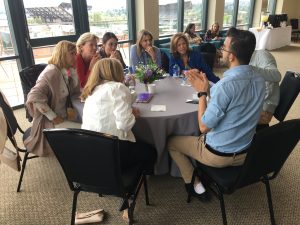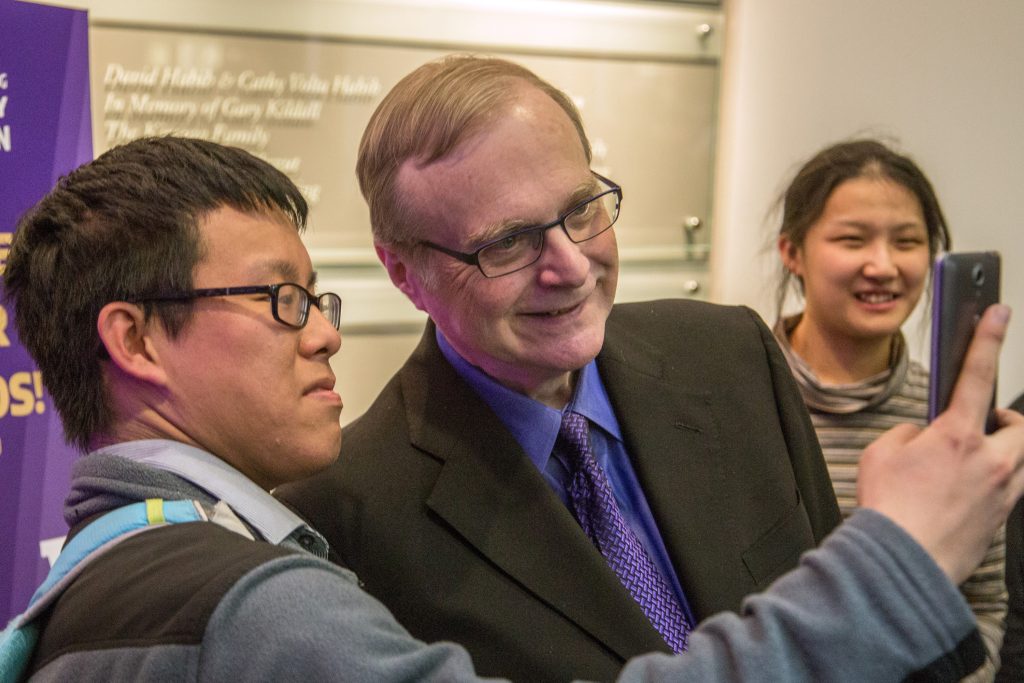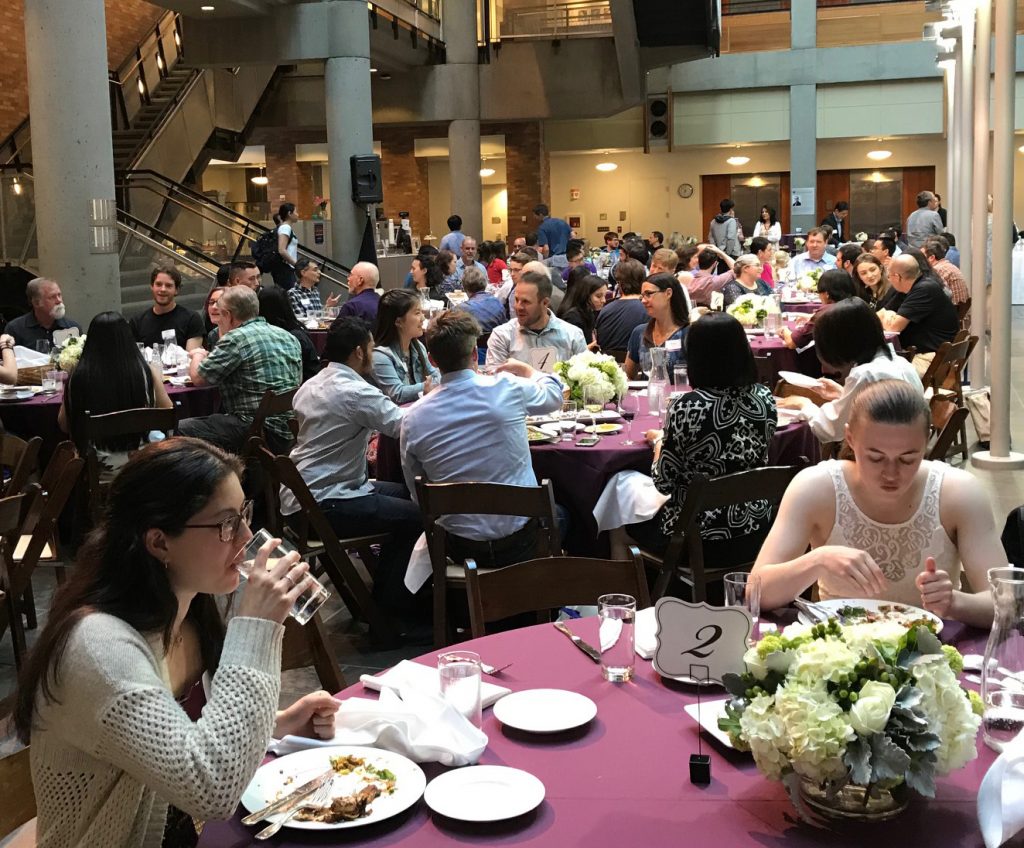 Every year, we in the Paul G. Allen School invite our new majors to identify their most inspirational high school or community college teacher – the teacher (each of us had one!) who changed their perception of what they should aspire to. We host these teachers, their partners, and the students who nominated them for dinner in the Allen Center (plus a bit of propaganda designed to encourage the teachers to send us more great students!).
Every year, we in the Paul G. Allen School invite our new majors to identify their most inspirational high school or community college teacher – the teacher (each of us had one!) who changed their perception of what they should aspire to. We host these teachers, their partners, and the students who nominated them for dinner in the Allen Center (plus a bit of propaganda designed to encourage the teachers to send us more great students!).
Congratulations and thanks to the Paul G. Allen School’s 2017-18 Inspirational Teachers – nominated by our students for the difference you’ve made in their lives. The wordcloud from the nomination statements submitted by our students says it all: inspirational, approachable, passionate, supportive, encouraging, helpful, empowering …
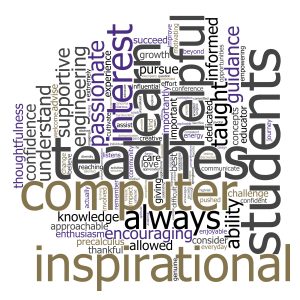 And special congratulations to Sam Procopio, the inaugural recipient of the Paul G. Allen School’s Award for Broadening Participation in Computing. Sam – regularly recognized as an Inspirational Teacher – sent 34 young women to our program during his 9 years of teaching computer science (and coaching soccer) at Holy Names Academy. This year he began a new phase of his career as Principal at Bishop Blanchet High School, from which he graduated in the previous century.
And special congratulations to Sam Procopio, the inaugural recipient of the Paul G. Allen School’s Award for Broadening Participation in Computing. Sam – regularly recognized as an Inspirational Teacher – sent 34 young women to our program during his 9 years of teaching computer science (and coaching soccer) at Holy Names Academy. This year he began a new phase of his career as Principal at Bishop Blanchet High School, from which he graduated in the previous century.
From early learning through graduate school, all educators are in the same business. Parents entrust us with their most precious asset – their children. We do our best to help these young people achieve their potential. When they excel – which is almost always, given the amazing raw material with which we are entrusted – we take pleasure in the fact that we’ve played at least some small role in that success.
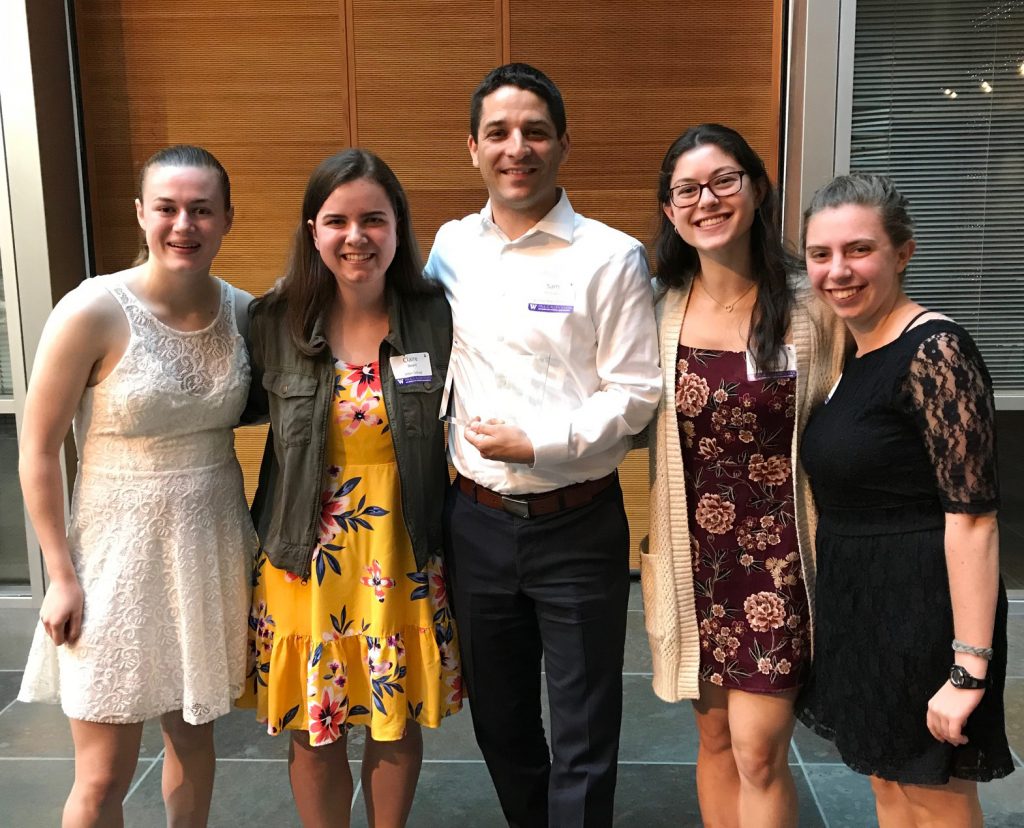
Sam Procopio flanked by Holy Names alums Erin Ripple, Claire Beard, Laura DeBoldt, and Mallory Johnson
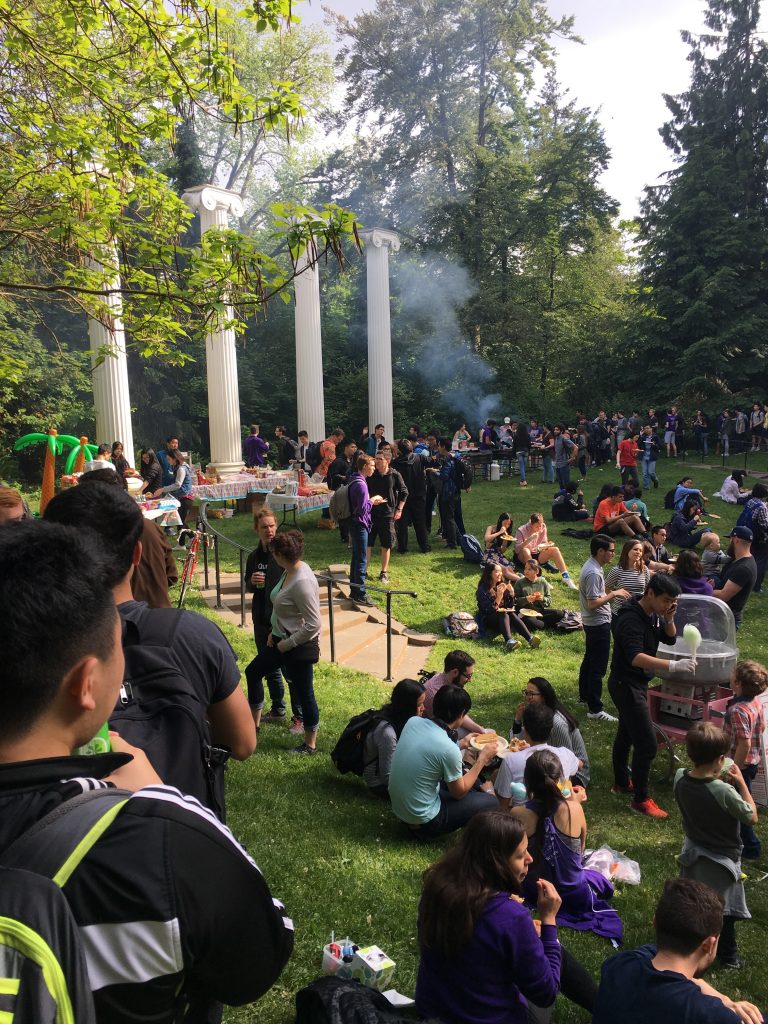 OK, so it wasn’t exactly balmy spring weather, and there was the usual 45-minute line for burgers, but a good time was had by all at the 2018 Allen School ACM Spring BBQ!
OK, so it wasn’t exactly balmy spring weather, and there was the usual 45-minute line for burgers, but a good time was had by all at the 2018 Allen School ACM Spring BBQ! Read more →
Read more →
Here’s a lovely video created by a University of Washington senior to encourage his kid sister to choose UW over other schools …
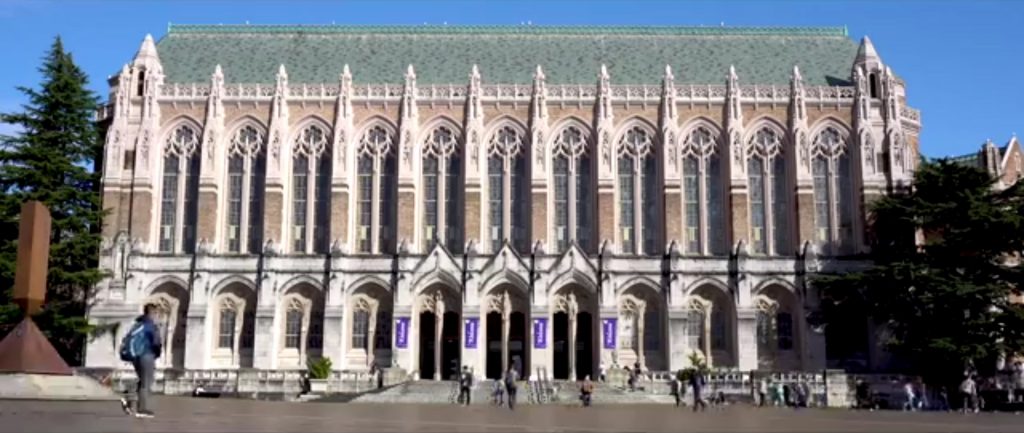 Read more →
Read more →
The antidote to becoming a dull computer scientist: the Allen School’s annual ski day at Stevens Pass! 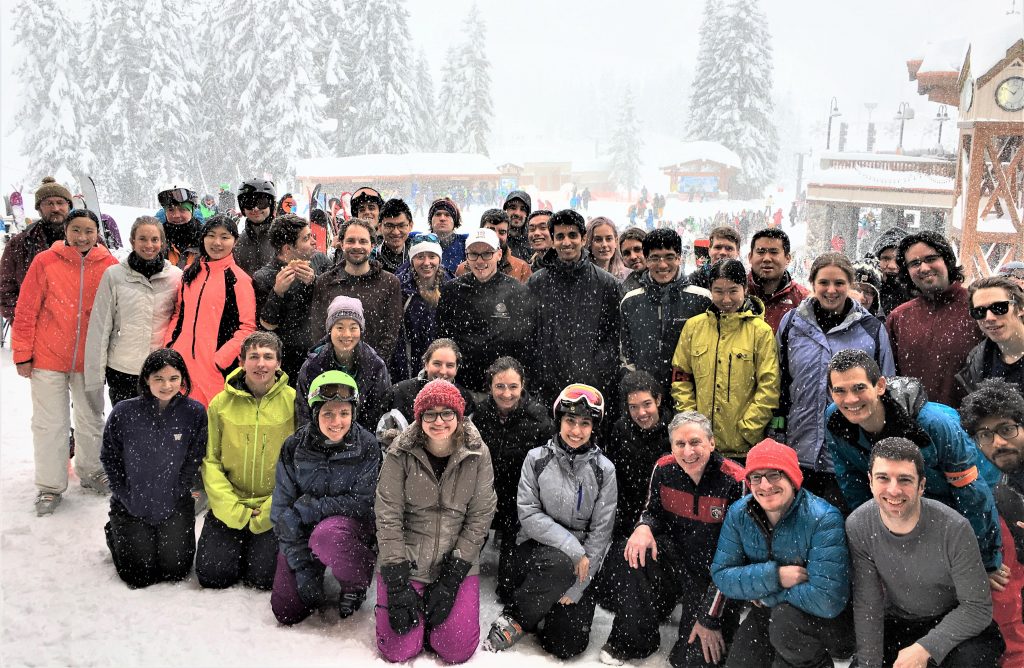 Read more →
Read more →
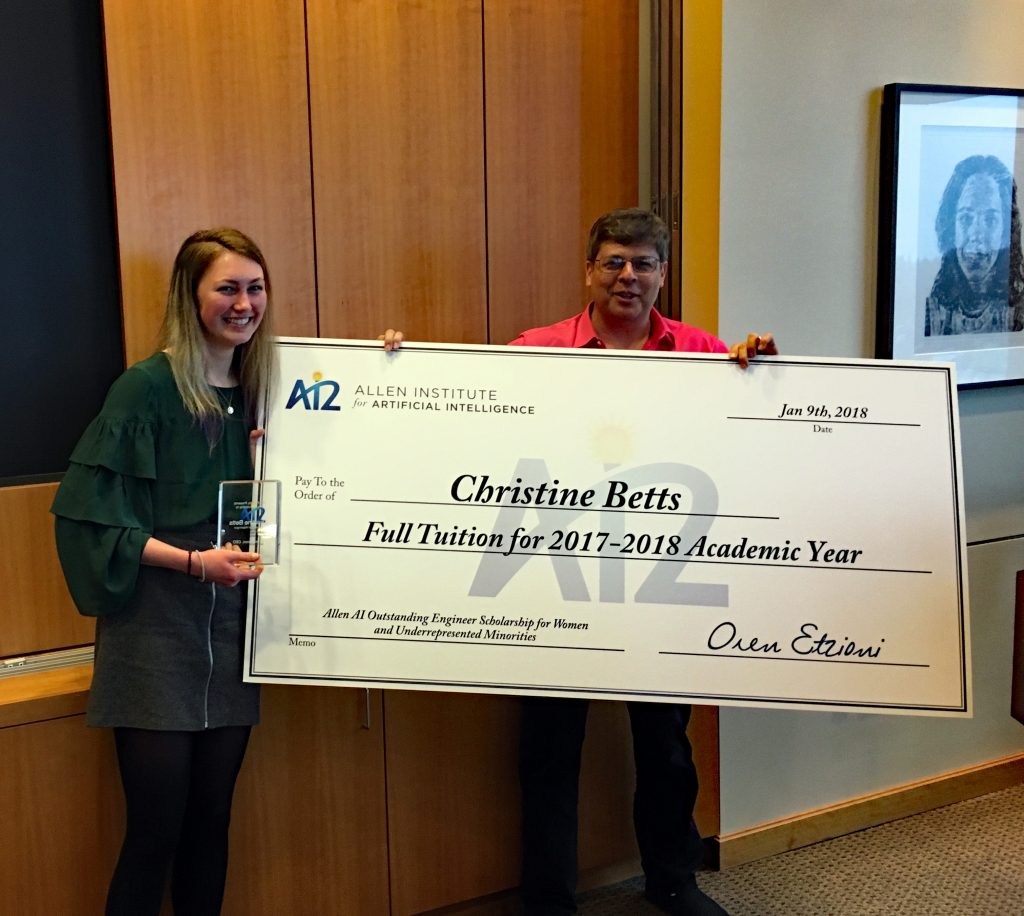
AI2 scholarship recipient Christine Betts and AI2 CEO Oren Etzioni
This afternoon the Allen Institute for Artificial Intelligence (AI2) awarded the inaugural Allen AI Outstanding Engineer Scholarship for women and underrepresented minorities to Allen School undergraduate Christine Betts.
The Allen Institute for AI created this scholarship to encourage underrepresented groups to excel in computer science and engineering, and become leaders and role models in their fields. The scholarship covers full tuition, fees, and textbooks for one academic year. It is accompanied by mentorship and a paid summer internship at AI2.
AI2 believes that diversity is fundamental to the greatest advances in science; a variety of backgrounds, perspectives, and experiences are necessary to combat the echo chamber effect so prevalent in technology companies. Encouraging diversity demonstrably results in teams with greater resilience and adaptability, and produces a wider range of tools and strategies. AI2 also believes it is important not just to attract diversity to CSE programs, but to nurture lifelong careers, and lend assistance to those who might not have equal access to opportunity.
Congratulations to Christine, and thanks to AI2, its CEO Oren Etzioni, and its founder Paul G. Allen! Read more →
In a remarkable coincidence, Google and Microsoft each published articles describing the accomplishments of wheelchair-using computer scientists in their engineering organizations – each of whom is an Allen School alum.
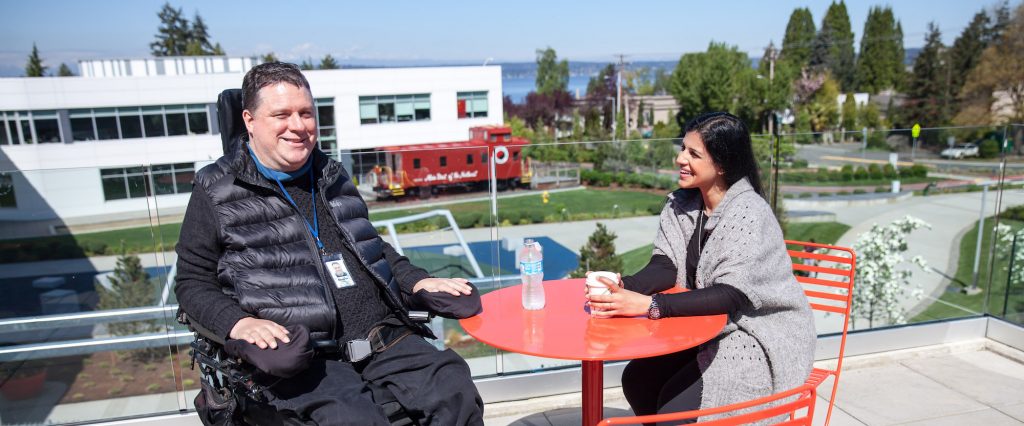 Doug Ferry, ’91, is quadriplegic as a result of a bodysurfing accident when he was 20 years old. He steers a motorized chair with his head and codes with a mouth stick. He spent 18 years at Microsoft before moving to Google 18 months ago. Read more about Doug in the Google post here.
Doug Ferry, ’91, is quadriplegic as a result of a bodysurfing accident when he was 20 years old. He steers a motorized chair with his head and codes with a mouth stick. He spent 18 years at Microsoft before moving to Google 18 months ago. Read more about Doug in the Google post here.
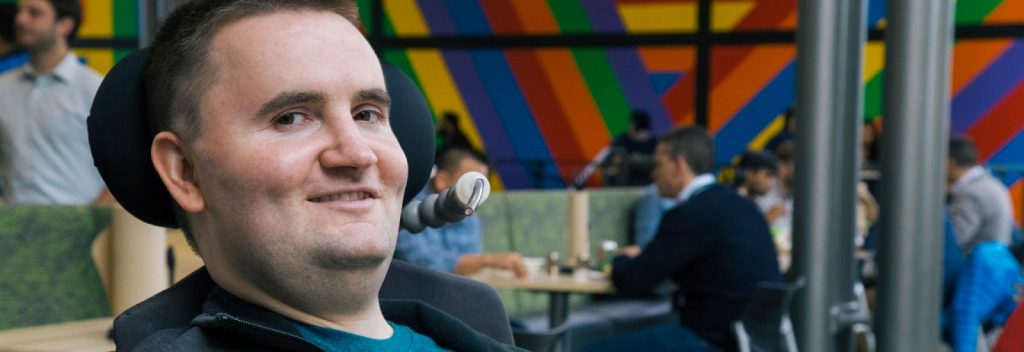 Chris Schlechty, ’08, has been at Microsoft since graduation. A full-stack developer on the Sharepoint team, Chris has muscular dystrophy and uses an onscreen keyboard and other assistive technology. Read more about Chris in the Microsoft post here.
Chris Schlechty, ’08, has been at Microsoft since graduation. A full-stack developer on the Sharepoint team, Chris has muscular dystrophy and uses an onscreen keyboard and other assistive technology. Read more about Chris in the Microsoft post here.
Doug Ferry and Chris Schlechty – wonderful examples of Allen School alums overcoming adversity and using their education to craft technology that helps others to do the same.
Thanks to Google and Microsoft for highlighting these amazing alums. Read more →
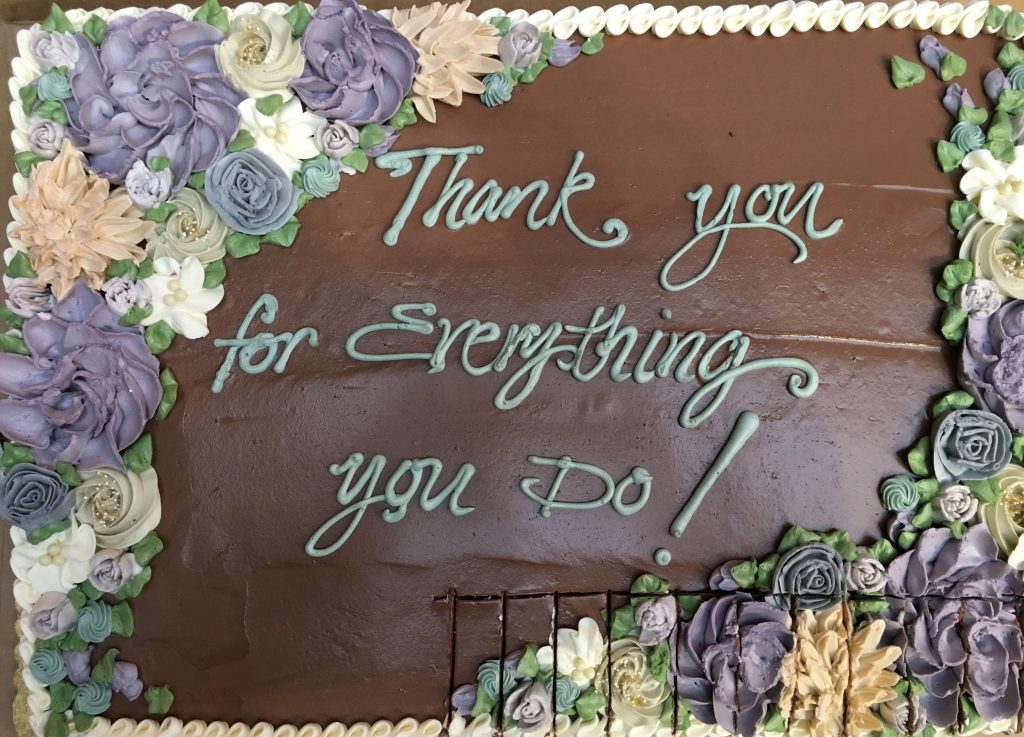 Today was the Paul G. Allen School’s annual thank-you luncheon for the 100+ men and women from UW Facilities Services who keep the Allen Center looking great and working great!
Today was the Paul G. Allen School’s annual thank-you luncheon for the 100+ men and women from UW Facilities Services who keep the Allen Center looking great and working great!
Thanks for all you do!
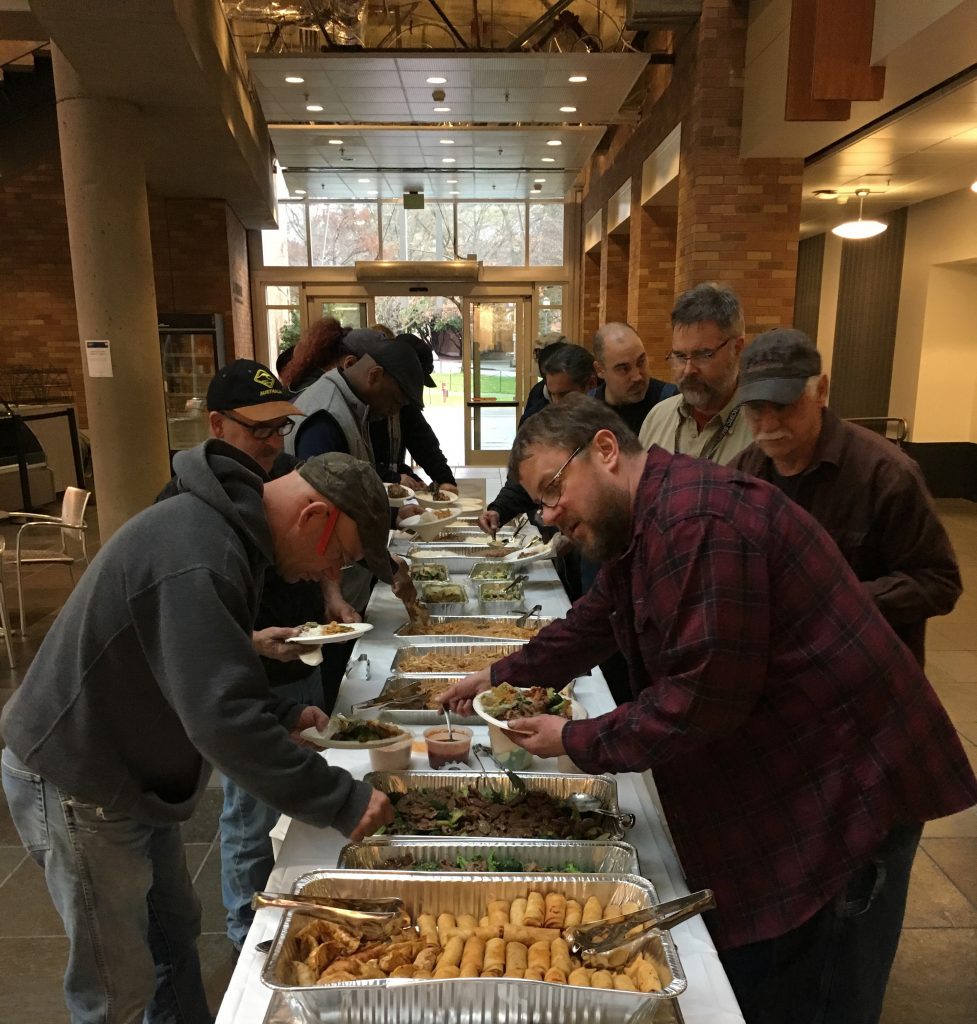
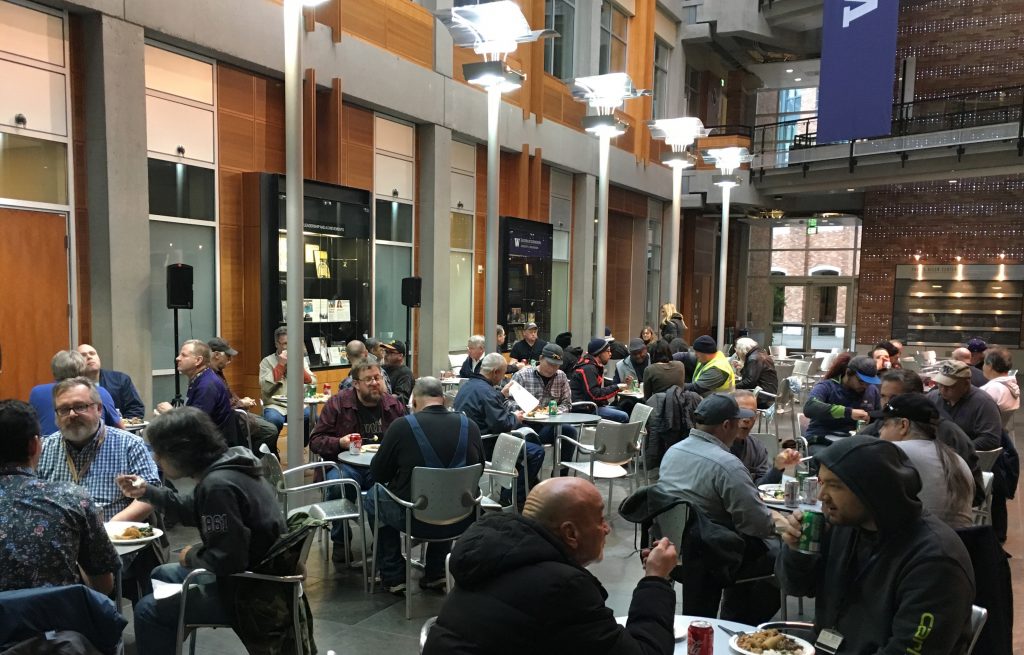 Read more →
Read more →
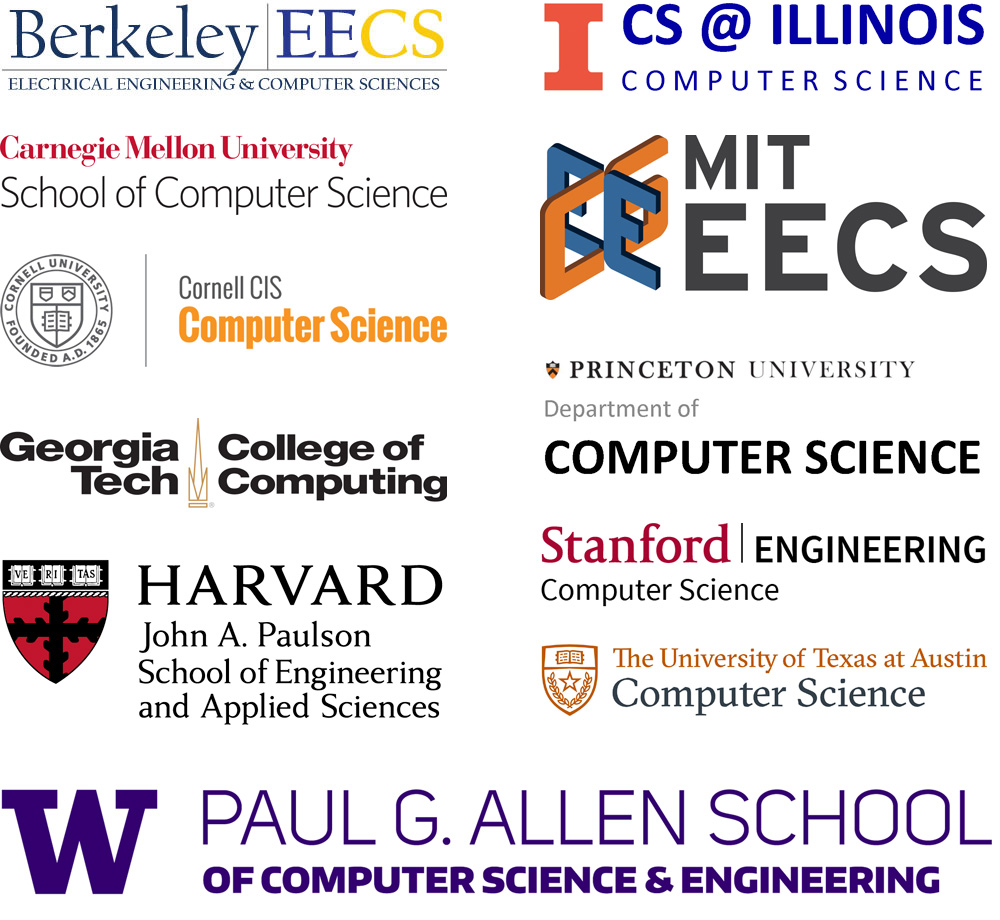 The Paul G. Allen School is proud to be one of 11 leading computer science programs in the FLIP Alliance: Diversifying Future Leadership in the Professoriate.
The Paul G. Allen School is proud to be one of 11 leading computer science programs in the FLIP Alliance: Diversifying Future Leadership in the Professoriate.
The problem that we address in the FLIP Alliance is stark and straightforward: only 4.3% of the current tenure-track faculty in computing at research-oriented universities are from underrepresented groups.
The FLIP Alliance approach is equally stark and straightforward: we intentionally bring together the very small number of programs responsible for producing the majority of the professoriate in the field with individuals and organizations that understand how to recruit, retain, and develop students from underrepresented groups, in order to create a network that can quickly and radically change the demographic diversity of the professoriate across the entire field.
The challenge is important because diverse faculty contribute to academia in a number of critical ways:
- Serve as excellent role models for a diverse study body
- Bring diverse backgrounds to the student programs and policies.
- Bring diverse perspectives to research projects and programs.
The FLIP Alliance is funded by an NSF INCLUDES grant awarded in 2017 that provides funding to launch and demonstrate the effectiveness of strategies focused on recruiting and retaining diverse doctoral students at the FLIP institutions.
The Allen School’s partners in the FLIP Alliance are the computer science programs at UC Berkeley, Cornell University, Carnegie Mellon University, the Georgia Institute of Technology, Harvard University, the University of Illinois, MIT, Princeton University, Stanford University, and the University of Texas.
For further information, contact the Allen School’s FLIP Advocates: Raven Alexander, Elise Dorough, and Ed Lazowska. Read more →
 Every year, we in the Paul G. Allen School invite our new majors to identify their most inspirational high school or community college teacher – the teacher (each of us had one!) who changed their perception of what they should aspire to. We host these teachers, their partners, and the students who nominated them for dinner in the Allen Center (plus a bit of propaganda designed to encourage the teachers to send us more great students!).
Every year, we in the Paul G. Allen School invite our new majors to identify their most inspirational high school or community college teacher – the teacher (each of us had one!) who changed their perception of what they should aspire to. We host these teachers, their partners, and the students who nominated them for dinner in the Allen Center (plus a bit of propaganda designed to encourage the teachers to send us more great students!). And special congratulations to Sam Procopio, the inaugural recipient of the Paul G. Allen School’s Award for Broadening Participation in Computing. Sam – regularly recognized as an Inspirational Teacher – sent 34 young women to our program during his 9 years of teaching computer science (and coaching soccer) at Holy Names Academy. This year he began a new phase of his career as Principal at Bishop Blanchet High School, from which he graduated in the previous century.
And special congratulations to Sam Procopio, the inaugural recipient of the Paul G. Allen School’s Award for Broadening Participation in Computing. Sam – regularly recognized as an Inspirational Teacher – sent 34 young women to our program during his 9 years of teaching computer science (and coaching soccer) at Holy Names Academy. This year he began a new phase of his career as Principal at Bishop Blanchet High School, from which he graduated in the previous century.




